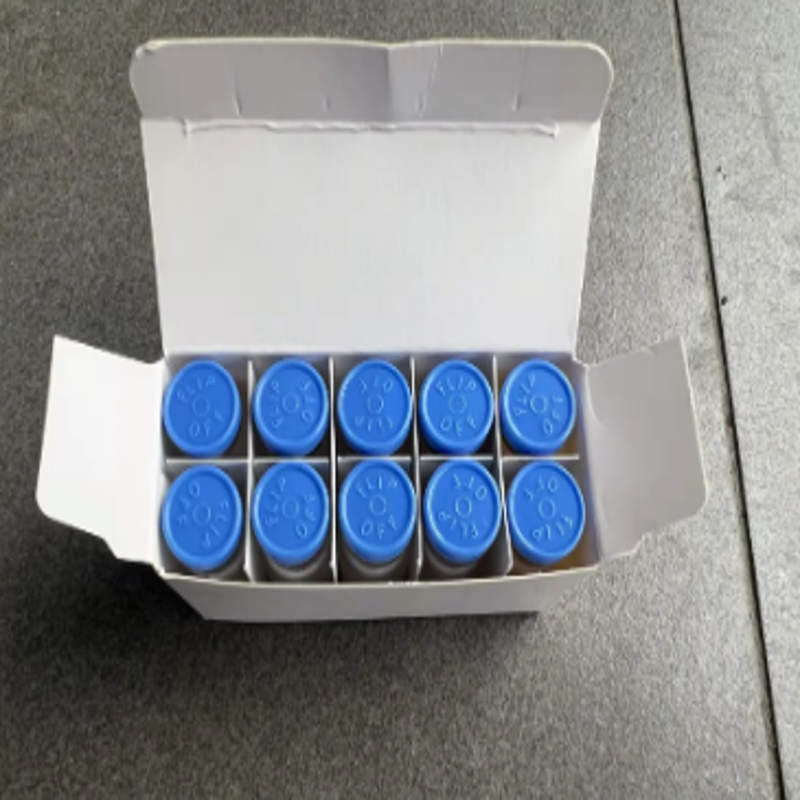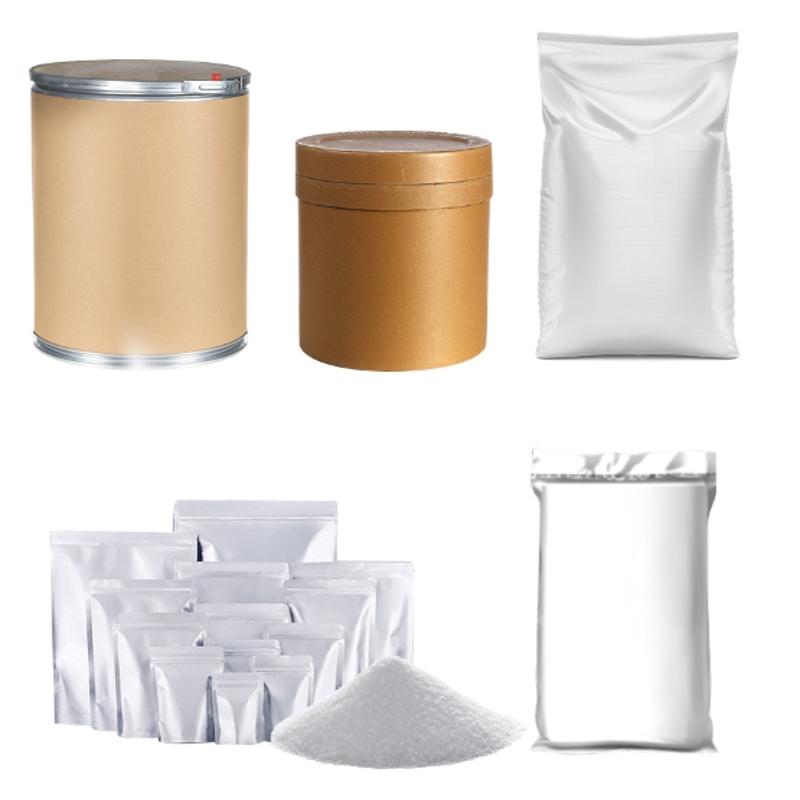-
Categories
-
Pharmaceutical Intermediates
-
Active Pharmaceutical Ingredients
-
Food Additives
- Industrial Coatings
- Agrochemicals
- Dyes and Pigments
- Surfactant
- Flavors and Fragrances
- Chemical Reagents
- Catalyst and Auxiliary
- Natural Products
- Inorganic Chemistry
-
Organic Chemistry
-
Biochemical Engineering
- Analytical Chemistry
- Cosmetic Ingredient
-
Pharmaceutical Intermediates
Promotion
ECHEMI Mall
Wholesale
Weekly Price
Exhibition
News
-
Trade Service
The 25th National Congress of Clinical Oncology and the 2022 CSCO Annual Conference were held
in Beijing, Jinan and Harbin from November 5 to 12 in the form of a combination of offline and online.
The theme of this year's conference is precision innovation, wisdom and humanities, and we will join hands with experts and scholars in various oncology fields across the country to carry out in-depth academic exchanges and scientific and technological cooperation, share clinical research and innovation achievements, deeply discuss precision oncology based on multidisciplinary standardized comprehensive treatment, and actively promote the development of
disciplines.
During the meeting, Yimaitong specially invited Professor Sheng Xinan from Peking University Cancer Hospital to share the treatment status and future prospects
of urothelial carcinoma for us.
Professor Sheng Xinan
Chief physician, professor, doctoral supervisor
Deputy Director of Department of Urological Oncology, Peking University Cancer Hospital
Chinese Society of Clinical Oncology ( CSCO).
Member of the Standing Committee and Secretary General of the CSCO Kidney Cancer Expert Committee
Member of the Standing Committee of the CSCO Urothelial Cancer Expert Committee
Member of the Bladder Cancer Quality Control Expert Committee of the National Cancer Quality Control Center
Member of the Urological Oncology Special Committee of the Chinese Anti-Cancer Association and member of the Renal Cancer Group
Deputy leader of the Rare Type Kidney Cancer Collaborative Group of the Urologic Oncology Special Committee of the Chinese Anti-Cancer Association
Chairman-elect of the Urologic Oncology Subcommittee of the Beijing Cancer Prevention and Treatment Research Association
Chairman of the Youth Committee of the Genitourinary Oncology Special Committee of the Beijing Anti-Cancer Association
Member of the Standing Committee of the Oncology Branch of Beijing Medical Association
He has long been engaged in clinical and translational research on urinary and skin tumors such as kidney cancer, bladder cancer, and prostate cancer, and has accumulated rich clinical experience
in the comprehensive treatment of advanced urinary tumors and mucosal melanoma.
Important results were published in JCO, JITC, CCR and other important SCI journals, with a cumulative impact factor of more than 200 points, and the article was introduced into the US NCCN guidelines for the diagnosis and treatment of kidney cancer and the UK guidelines
for head and neck mucosal melanoma.
As a major member, he won the second prize of the Science and Technology Award of the Chinese Anti-Cancer Association and the third prize of the Science and Technology Award of the Chinese Medical Association
.
for various reasons.
What dilemmas do you think are facing in the treatment of advanced urothelial carcinoma in China? Professor Sheng Xinan:
Compared with other tumor patients, patients with advanced urothelial cancer in China have some characteristics
.
First of all, the age of onset of many patients is late, and a foreign epidemiological data shows that the median age of patients with advanced urothelial cancer is about 75 years old
.
Clinically, platinum-based chemotherapy is the basis for the systematic treatment of advanced urothelial carcinoma in China, and age factors have led to some patients being unable to accept or tolerate treatment, which is also the main dilemma
.
In addition, there is also a situation of "talking about chemotherapy discoloration" in China, when clinicians tell patients that chemotherapy is needed, many patients are unwilling to accept such treatment options
.
Therefore, the current treatment dilemma is related to
the fact that the existing treatment methods are still not very ideal.
If there is a better treatment for advanced urothelial carcinoma and better tolerated by patients, more patients can receive systemic treatment and get more clinical benefits
.
In addition, there is a certain lag in statistics on failure to receive systemic treatment, and the field of new drugs for advanced urothelial carcinoma is developing
rapidly in the world.
In recent years, some new treatments have emerged, including immunotherapy, targeted therapy, and antibody drug conjugates (ADCs
).
The new treatment plan further reduces the physical requirements for patients and is covered by medical insurance, so I think the proportion of patients receiving systematic treatment in China will be further increased
in the future.
In terms of postoperative adjuvant treatment for urothelial carcinoma, the 2022 version of the CSCO guidelines for urothelial carcinoma has basically no major changes compared with the 2021 version, and we have adjusted and sorted out the adjuvant treatment part of upper urothelial carcinoma (UTUC), but the essence of the guidelines remains unchanged
.
In terms of specific recommendations, PD-1 monoclonal antibody can be used as a postoperative adjuvant therapy for high-risk urothelial carcinoma of bladder origin, but we need to combine specific clinical facts
when looking at guidelines and evidence-based medicine.
The guideline evidence comes mainly from the Nivolumab CheckMate-274 study, which showed that nivolumab significantly delayed tumor recurrence
in patients with muscle-invasive urothelial carcinoma compared with controls.
It is worth noting that the patients enrolled in this study are mainly European and American populations, and the proportion of patients who can receive neoadjuvant chemotherapy reaches 40%~50%.
In China's clinical practice, this proportion may only be 5%~10%, or even less than 5%.
Therefore, for patients with high-risk bladder cancer who did not receive neoadjuvant chemotherapy before surgery, the efficacy of postoperative adjuvant immunotherapy is unclear, so the recommended strength of adjuvant PD-1 monoclonal antibody therapy is higher
for patients receiving neoadjuvant chemotherapy.
For UTUC originating in the renal pelvis or ureters, there is evidence from evidence-based medicine as a level 1 evidence that GC chemotherapy is still a good treatment for delaying recurrence
.
The CheckMate-274 study only enrolled a small number of patients, so we believe that immunotherapy is an alternative treatment option that cannot receive adjuvant platinum-based chemotherapy, and the actual efficacy of adjuvant immunotherapy for UTUC patients in China needs to be further verified
by corresponding studies and data.
Therefore, for urothelial cancer guidelines and evidence-based medical evidence, my personal suggestion is that everyone needs to look at the scope of
application dialectically.
I believe that immunotherapy plays an ice-breaking role
in the field of drug treatment of advanced urothelial cancer.
In the past two or three decades, only gemcitabine and cisplatin drugs have been used in the field of urothelial carcinoma drug treatment, and since 2016, immunotherapy has emerged in patients who have failed chemotherapy, which not only improves the objective and effective rate, but also improves the overall survival
of patients 。 At the same time, PD-1/PD-L1 monoclonal antibody immunotherapy continues to move forward, and has also achieved success in the fields of maintenance therapy and adjuvant therapy after chemotherapy is effective, and the combination with other treatments, especially the combination of immune and antibody conjugate drugs carried out in recent years, the initial data have shown good objective and effective rates, and the follow-up phase 3 study may change the treatment status
of advanced urothelial carcinoma if it can be expected to be successful.
Therefore, immunotherapy has become an indispensable part of the field of urothelial cancer drug treatment, profoundly changing clinical practice
.
This platform is designed to deliver more medical information
to healthcare professionals.
The content published on this platform cannot replace professional medical guidance in any way, nor should it be regarded as diagnosis and treatment advice
.
If such information is used for purposes other than understanding medical information, this platform does not assume relevant responsibilities
.
The content published by this platform does not mean that it agrees with its description and views
.
If copyright issues are involved, please contact us and we will deal with
it as soon as possible.







